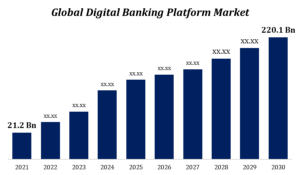The Role of Fintech in Streamlining Cross-Border E-Commerce Transactions
As global e-commerce continues to expand at a rapid pace, businesses and consumers are increasingly engaging in cross-border transactions. However, the complexities involved in cross-border e-commerce—such as varying currencies, regulations, and payment systems—can create significant challenges. This is where financial technology, or fintech, steps in. Fintech innovations are transforming how cross-border transactions are handled, making them faster, more efficient, and more secure. In this blog, we will explore how fintech is streamlining cross-border e-commerce transactions and the key benefits it brings to the table.
Understanding the Challenges of Cross-Border E-Commerce
Cross-border e-commerce involves buying and selling goods or services across international borders, and it comes with its own set of challenges:
- Currency Exchange: Dealing with multiple currencies requires complex exchange rate calculations and can incur additional fees.
- Regulatory Compliance: Different countries have varying regulations concerning taxes, tariffs, and import/export restrictions, making compliance a significant hurdle.
- Payment Processing: Traditional payment systems may not support multiple currencies or may involve high transaction fees.
- Fraud Prevention: Cross-border transactions are susceptible to fraud and security risks due to varying levels of regulatory oversight and security measures.
- Delivery and Logistics: Coordinating international shipping, handling customs, and ensuring timely delivery adds another layer of complexity.
How Fintech is Revolutionizing Cross-Border E-Commerce
Fintech is addressing these challenges through a range of innovative solutions designed to simplify and enhance the cross-border e-commerce experience. Here’s how:
1. Multi-Currency Payment Solutions
Fintech companies have developed advanced payment gateways and platforms that support multiple currencies. These solutions allow businesses to accept payments in various currencies and convert them at competitive exchange rates. For instance, platforms like PayPal and Stripe offer multi-currency payment processing, enabling merchants to reach global customers without worrying about currency conversion issues.
Benefits:
- Reduced Exchange Rate Fees: Fintech platforms often offer more favorable exchange rates compared to traditional banks.
- Seamless Transactions: Customers can pay in their local currency, improving their shopping experience.
2. Cross-Border Payment Platforms
Fintech startups are introducing cross-border payment solutions that facilitate faster and more cost-effective international transactions. Companies like TransferWise (now Wise) and Revolut have created platforms that streamline cross-border payments by leveraging blockchain technology and digital currencies.
Benefits:
- Lower Transaction Costs: These platforms often charge lower fees than traditional banks and intermediaries.
- Faster Transactions: Payments can be processed in real-time or within a few hours, compared to several days with traditional methods.
3. Regulatory and Compliance Tools
Navigating regulatory requirements is a complex aspect of cross-border e-commerce. Fintech solutions are providing compliance tools that help businesses adhere to international regulations. Solutions like TaxJar and Avalara offer automated tax calculation and compliance services, ensuring that businesses correctly handle VAT, GST, and other taxes.
Benefits:
- Automated Compliance: Streamlines the process of adhering to varying tax regulations and customs requirements.
- Reduced Risk of Penalties: Helps businesses avoid fines and legal issues related to non-compliance.
4. Fraud Prevention and Security
Ensuring the security of cross-border transactions is critical. Fintech companies are implementing advanced fraud detection and prevention systems using machine learning and artificial intelligence. These systems analyze transaction patterns in real-time to identify and prevent fraudulent activities.
Benefits:
- Enhanced Security: Protects businesses and consumers from fraud and data breaches.
- Increased Trust: Builds confidence among customers in the security of their transactions.
5. Seamless Integration with E-Commerce Platforms
Many fintech solutions integrate directly with e-commerce platforms like Shopify, WooCommerce, and Magento. This integration allows businesses to manage payments, refunds, and financial reporting from within their existing e-commerce infrastructure.
Benefits:
- Simplified Operations: Centralizes financial management and reduces the need for manual intervention.
- Improved Efficiency: Streamlines the payment process and enhances the overall user experience.
Case Studies of Fintech in Action
- Alibaba and Alipay: Alibaba’s Alipay platform enables seamless cross-border payments for its global customer base. By providing multi-currency support and integrating with various e-commerce platforms, Alipay has simplified the payment process for both merchants and consumers.
- Shopify Payments: Shopify Payments offers built-in multi-currency support, allowing merchants to accept payments in over 100 currencies. This integration helps Shopify users streamline their cross-border transactions and manage their finances more effectively.
- Wise (formerly TransferWise): Wise has revolutionized cross-border payments with its low-cost, transparent approach. By using a peer-to-peer model and leveraging digital currencies, Wise has made international transactions faster and more affordable.
The Future of Fintech in Cross-Border E-Commerce
The role of fintech in cross-border e-commerce is expected to grow, with ongoing advancements in technology and evolving consumer expectations. Future developments may include:
- Greater Adoption of Blockchain: Blockchain technology could further streamline cross-border payments by providing a decentralized and secure payment infrastructure.
- Enhanced AI and Machine Learning: AI and machine learning will continue to improve fraud detection, customer service, and financial analysis.
- Integration with Emerging Technologies: Fintech solutions may integrate with technologies like the Internet of Things (IoT) and augmented reality (AR) to enhance the e-commerce experience.
































